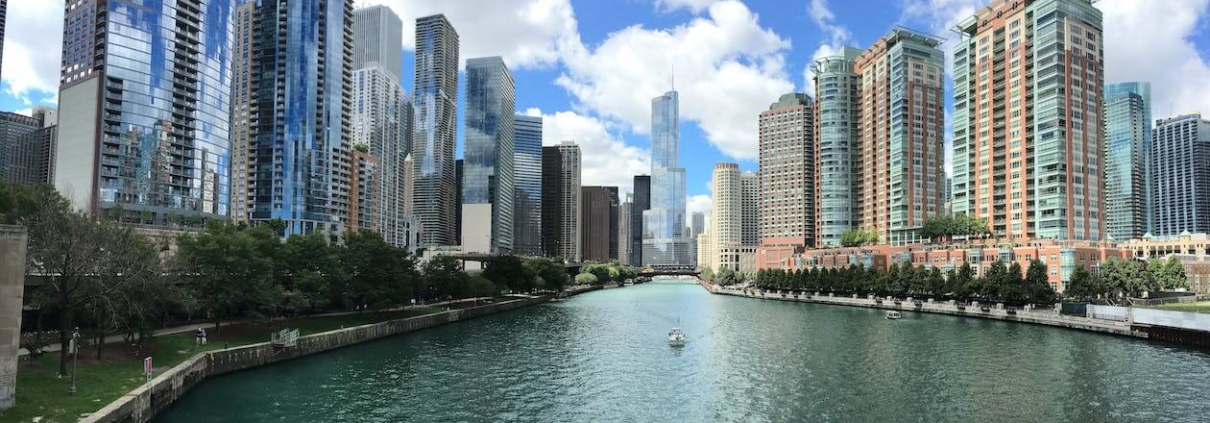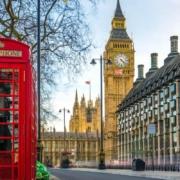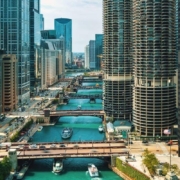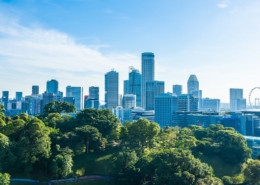The Evolving Landscape: Regulation of Airbnb in the City of Chicago
- The Best US Cities for Airbnb Business
- The Myriad Advantages of Investing in Airbnb Properties in Chicago
- Steps to Launch an Airbnb Business in Chicago
In the sprawling city of Chicago, known for its magnificent skyline, dynamic culture, and robust economic activity, one cannot ignore the impact of the sharing economy. Specifically, Airbnb has had a significant influence on how we perceive and engage with hospitality. However, this transformation is not without its complexities, particularly with respect to city regulations. We delve into these intricacies through the lens of empirical evidence and statistics. Discover the intriguing narrative around the regulation of Airbnb in the city of Chicago, where urban hospitality, legislation, and local interests are tightly entwined.
A Statistical Overview: Airbnb in Chicago
Airbnb, since its inception, has had a substantial footprint in Chicago. As of 2023, there are approximately 6,600 active Airbnb rentals in the city. Notably, nearly 80% of these are entire home listings, aligning with the trend of travelers seeking comprehensive home-like experiences.
Residential and Tourism Balance

With over 60% of Chicago’s Airbnb listings concentrated in just five neighborhoods: Near North Side, Lakeview, West Town, Logan Square, and the Near West Side, the city administration has initiated a licensing system to distribute tourism benefits and burdens more equitably. This regulation helps to maintain a balance between resident convenience and tourist demand.
Protecting Housing Affordability
Chicago has more than half a million renter households, with 56% of them paying more than 30% of their income in rent. To combat potential rental market distortions from short-term rentals, the city introduced regulations to limit the number of Airbnb listings per ward.
Licensing and Taxation
Chicago has responded to this growing market with a regulatory framework that aims to balance residential tranquility, affordable housing, and the tourism economy. Like any business operating within the city, Airbnb hosts are required to hold a valid license. Chicago has implemented a system that allows them to track and regulate short-term rental units effectively. On the taxation front, Airbnb collects and remits the Hotel Accommodations Tax on behalf of hosts in Chicago, reflecting the platform’s commitment to operating within the legal framework.
The Comprehensive Handbook on Taxation for Airbnb Income in Chicago
Since 2017, Chicago has required Airbnb to share data on listings and submit to regular audits. By 2019, Airbnb had contributed $11.5 million to a city fund supporting homelessness services through the collection of a 4% surcharge on bookings.
Useful link: Chicago, IL – Airbnb Help Center.
Airbnb’s Model: Feasible & Sustainable

Despite regulation, Airbnb continues to flourish in Chicago. The average daily rate for an Airbnb rental in the city stands at $200, suggesting a profitable endeavor for hosts adhering to city regulations. This demonstrates the resilience of Airbnb’s model, which has the flexibility to adapt to regulatory requirements while continuing to provide a valuable service for travelers.
Community Harmony: Measured & Maintained
Chicago’s measures to ensure community harmony are reflected in decreasing resident complaints about short-term rentals. In 2019, the city registered a 15% decline in these complaints compared to 2018. This reduction in grievances indicates that the city’s regulatory measures are effective in addressing residents’ concerns and maintaining community harmony.
Conclusion
In conclusion, the regulatory landscape of Airbnb in Chicago represents a dynamic and evolving ecosystem. The city’s strategies to balance residential needs, housing affordability, and tourism demand offer valuable lessons for other cities grappling with the rise of the sharing economy. As the sharing economy continues to grow and evolve, Chicago’s approach to regulating Airbnb will undoubtedly continue to be a subject of interest for policymakers and stakeholders alike.
Check out
Navigating Airbnb Regulations in Los Angeles 2023: Promoting Safety, Neighborliness, and Compliance


















